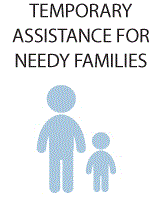When a mother loses her job because of domestic violence, or when she flees an abusive partner who has prevented her from working outside the home or keeping her own money (frequent forms of financial abuse), safety can depend on having access to economic resources. Domestic violence affects individuals and families in the District at every socioeconomic level, from all wards and walks of life, but low-income parents are especially vulnerable to the impact of abuse. For victims without financial resources or family to fall back on, Temporary Assistance for Needy Families (TANF) and other public benefits provide a financial separation from abuse’and a bridge to independence.

Because of the importance TANF can have for survivors of abuse, domestic violence advocates supported creating TANF time limit exemptions that “˜stop-the-clock’ for domestic violence survivors who have not hit the 60-month time limit. This was passed in 2012 and became accessible to survivors in late 2014 when funding was included in the budget. The exemption recognizes the safety and economic challenges faced by survivors and is a national best practice.
But that is not enough to make the District a safe place and help empower survivors. Victims of abuse could still reach the 60-month time limit if the abuse occurred before the stop-the-clock exemption went into effect. And if abuse occurs after a family has been cut off due to time limits, the District offers no way for a family to get back on temporarily. Domestic violence survivors who reach the time limit more frequently return to abusive partners than other survivors in a time of desperate financial need. [1]
More than 6,000 District families face elimination of TANF benefits this October unless the Council supports the mayor’s proposal to delay these harmful cuts for one year. Among these families are survivors of domestic violence who would be eligible for a time limit extension in most other states, which recognize that some families need more time to move to self-sufficiency.
Delaying the benefit cut for one year will give the Department of Human Services time to improve services and develop a time limit extension policy that ensures particularly vulnerable families, including domestic violence survivors, have the extra time they need to move to self-sufficiency.
To print a copy of today’s blog, click here.
[1] Scott E., London A., and N. Myers. 2002. “Dangerous Dependencies: The Intersection of Welfare Reform and Domestic Violence.” Gender and Society 16: 876-898 at 882.
